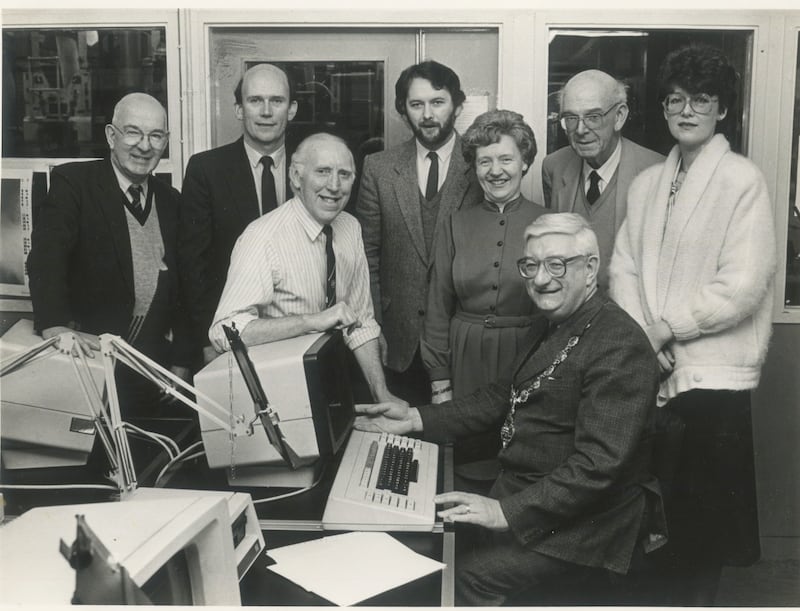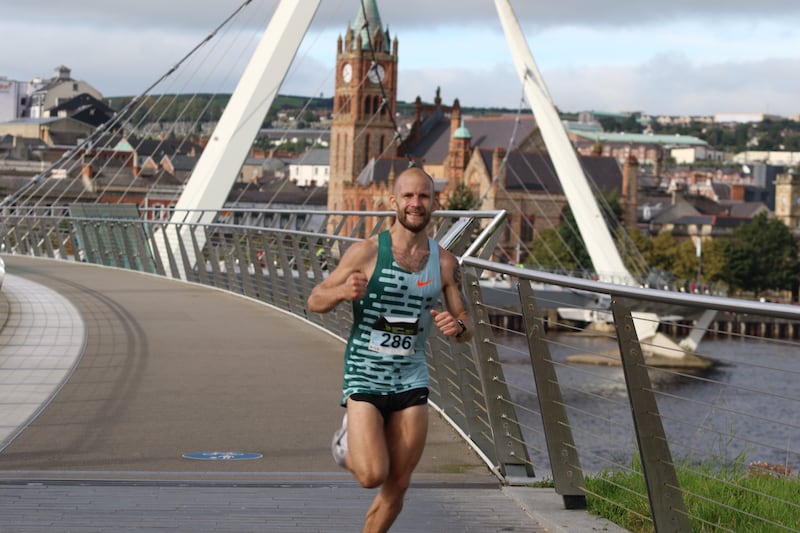Book Review:
War, Peace and the Derry Journal
By Pat McArt
Colmcille Press
Perhaps the most striking thing about Pat McArt’s memoir about his time as editor of the Derry Journal is that there is no mention of Phil Coulter. The book could just as easily have been titled The Town I Loved So Well for it is a hymn to a city traduced by history.
McArt, a blow-in from nearby Donegal, was its chronicler for a quarter of a century and from the beginning to the end of this impassioned book, he upbraids those who have worked tirelessly to keep Derry down.
Some of his targets are obvious. He is blistering about the naked sectarianism of successive unionist administrations, and the indifference of British secretaries of state who ignored the city. And he is unsparing in his criticism of the security services, the police, military and judiciary.
But McArt has no time either for the mainstream media which he says promoted British propaganda. The “BBC and Ulster Television reflected the establishment view,” he notes.
But his harshest criticism is for “the Dublin 4 media set”. At RTE “any attempt to portray nationalists or republicans in a sympathetic light was strangled at birth”.
With some insider knowledge – McArt worked for a year at the Irish state broadcaster before heading back north – he says: “I have long contended it was disgraceful that RTE should have adopted a narrative that pretty much echoed the British version.”

With a history stretching back more than 200 years, the Derry Journal was totemic for the city’s nationalist community. “In Derry there were only three positions which really counted – the MP, the Catholic bishop, and the Editor of the Derry Journal,” McArt was told.
Headed for a career in accountancy before bombing maths in his Leaving Cert, McArt ended up in journalism almost by accident. His ascent was swift. Editor of the Derry People at 24, speedy promotion at RTE, and then the editor’s chair in the Journal – in his own words “a 28-year-old, politically wet-behind-the-ears Donegal man”.
Landing in the city caught “in an undercurrent of seething rage” following the deaths of hunger-strikers Patsy O’Hara and Mickey Devine, “this was life on the edge. Any newsperson worth his/her salt would have been intrigued by it all, and I certainly was”.

Three men dominated his time as editor. The MP, John Hume; the bishop, Edward Daly; and the local IRA warlord Martin McGuinness. History sealed each of their fates, but in any place and any age they would have been towering figures.
Although Hume “was an absolute political colossus” they never really got on “for some reason that I have never got to the bottom of”.
Part of that might have been McArt’s discomfort with the “St Columb’s College ruling class” which believed it had squatters’ rights to the Journal’s pages, and resented increasing editorial coverage of working class and republican politics.
The spark that many believe lit the whole conflagration that was to become the Troubles was the truly scandalous sectarian decision to site Northern Ireland’s second university not in the second city, Derry, but in the small unionist market town of Coleraine
— Pat McArt
Their plight is well-reflected in one of McArt’s many pithy observations. “In 1981 the west bank of Derry was the biggest open prison in Europe,” its people hemmed in by the military and armed police.
One of the most refreshing things about this memoir is McArt’s willingness to criticise himself. Looking back on his relationship with Hume, he says: “I was often short-sighted and should have been more generous, I regret that now.”
From Daly – more liberal in private, we are told, than he felt he could be in public – McArt says he learned to be less judgmental. The violence was not spontaneous, but was rooted in injustice.
One of the ironies of McArt’s editorship was that, while he was closer to Hume’s politics, his relationship with McGuinness was much more trusting: “While Hume was world famous for his peace efforts McGuinness was world famous for his war efforts.”

But McArt found McGuinness – who was the gatekeeper on the republican side who enabled the peace process – someone who always “kept his word” whatever their disagreements.
Radicalised by the treatment of nationalist leaders by unionists and the RUC, “what drove him was moral certitude. He believed totally in the righteousness of his cause”. McGuiness was one of many.
In spite of the peace process many of the ingredients which fed violence then remain today, among them the refusal to make Derry a university city.
“The spark that many believe lit the whole conflagration that was to become the Troubles was the truly scandalous sectarian decision to site Northern Ireland’s second university not in the second city, Derry, but in the small unionist market town of Coleraine.”
A self-styled “dinosaur” McArt, charts the paper’s sale to Mirror Group in 1998 – the process was tortured for the staff and “none of us involved came out of it smelling of roses” he remarks. He got on well with Mirror chief David Montgomery - “unfailingly polite, always supportive” - but things changed with the Mirror’s subsequent sale to Trinity Newspapers.
“I could see the writing on the wall for people like me,” says McArt. He stepped down in 2006.
Written from memory – he didn’t keep a diary or go back over the files – on the basis that if you can’t remember it, it’s not worth writing about, it’s taken almost 20 years for him to put pen to paper.

Yes it’s written with the benefit of hindsight, and regret for a passing age. “They are all dead now, the big players during my time as Editor of the Derry Journal – Hume, McGuinness, Daly,” he muses.
But there is anger there too that although times have changed, they have not yet changed enough for the town he loves so well.
“Investment in the city from the Belfast-centric Stormont-led parliament and civil service can only be described as pathetic,” he writes.
“Job creation projects are thin on the ground as potential investors are still, seemingly, steered east of the Bann on almost every occasion. A clear indicator of the economic disparity is the simple fact that disposable income in the North West is way below that in the east.”
Now that’s a challenge for the new executive.








